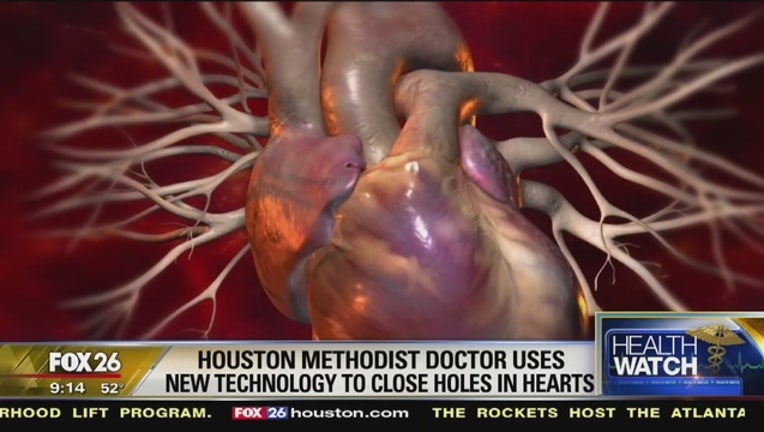Houston Methodist doctor uses new technology to close holes in hearts

HOUSTON (FOX 26) - Everyone is born with a hole in their heart, but for 25% of the population, it never closes. Dr. Huie Lin, a cardiologist at Houston Methodist, has revolutionized a new method to treat these cases, now recognized as a normal variant.
Undetectable by simply listening to a patient's heartbeat, a hole in the heart, or a patent foramen ovale (PFO), is found through tests such as an echocardiogram or transcranial doppler.
"We look at the blood flow in the brain," says Dr. Lin. "We find patients who have had a stroke who don't have a very clear reason for having [one], especially in our young patients. We then start looking for structures like PFOs that could be causing the stroke."
Through two major clinical trials in the United States, data has been found proving that strokes can be prevented through treating PFOs.
"What we do is a cardiac catherization procedure. [Gore Cardioform septal occluder] fits in through a small tube and we insert from a vein in the leg."
According to Dr. Lin, a young person with a PFO has a stroke risk of 4-6% that is then reduced by 1-2% each year, which can significantly reduce stroke risk over long periods of time.

